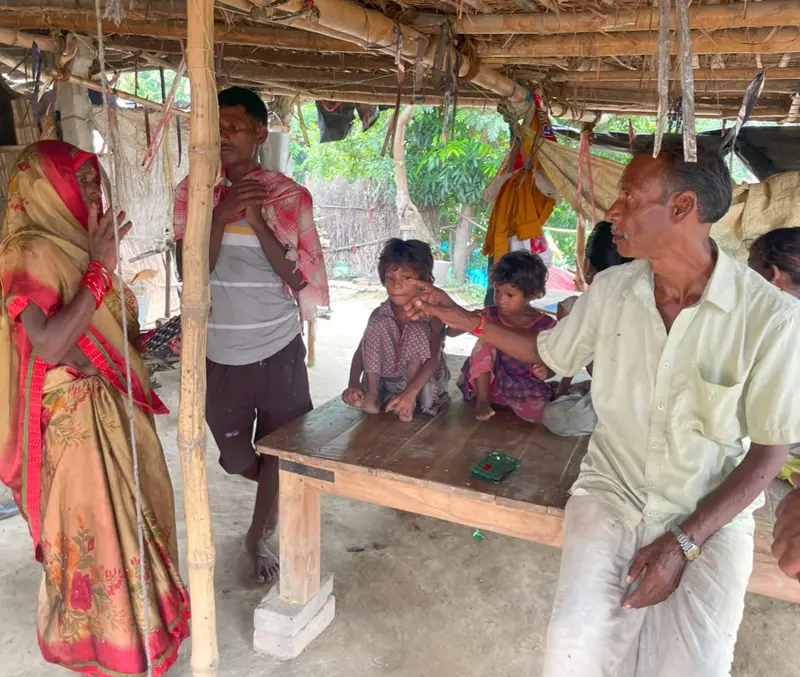
At dawn in a makhana pond, a farmer stoops to shake foxnut seeds from their pods and coughs through the work. Each visit to a distant clinic costs a day’s wage and often brings no clear answer. These missed chances add up in Bihar, where only 360 presumptive TB examinations are done per lakh people compared with 1,710 nationally. India also carries about 27% of the global TB burden, so closing Bihar’s detection gap matters well beyond the state. Stock-outs, staffi ng gaps, and long distances keep many people undiagnosed and infectious, especially in low-income households.
We partner with an organisation that brings care to village lanes. A community worker sits with the family, listens, and explains the next steps. A sample is collected at home and taken to the nearest lab. Results come back quickly. If tuberculosis is confirmed, the local health worker helps the person start treatment, checks on them regularly, and links the family to public
schemes for food and medicine. A free phone line in the local language answers questions and keeps people on track, motivated and hopeful.
The work also strengthens the public system so gains last. Staff in clinics and laboratories receive regular training. Women on the front line build digital, financial, and mobility skills. Data guide outreach to neighbourhoods where risk is high. The aim is simple and ambitious at once: fi nd people earlier, help them complete treatment, and show how a district can not just tuberculosis free but become a model district for nation-wide replication.

